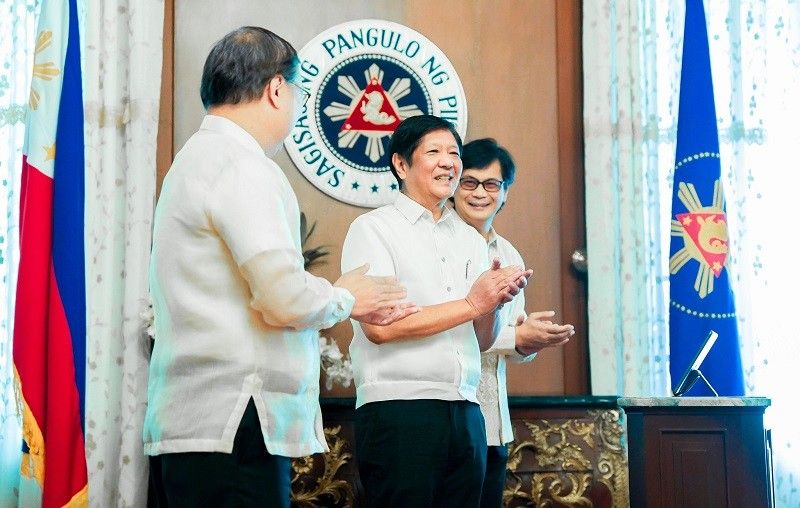Marcos finally lifts COVID-19 state of public emergency. What happens next?

MANILA, Philippines — President Ferdinand Marcos Jr. has issued Proclamation 29 that lifted the state of public health emergency throughout the Philippines — effectively revoking various orders, memoranda, among others, due to the coronavirus pandemic.
The Palace released the said statement on Saturday, even if the issuance was actually signed by Marcos last Friday.
"All prior orders, memoranda, and issuances that are effective only during the State of Public Health Emergency shall be deemed withdrawn, revoked or canceled and shall no longer be in effect," said the president in his proclamation.
The Philippines has been under the said public health emergency since March 2020, just a few days before the declaration of nationwide lockdowns against the deadly virus.
This happens after the World Health Organization highlighted the decreasing COVID-19 deaths, hospitalizations and intensive care unit admission amid "high levels of population immunity" against SARS-CoV2.
WHO Director-General Tedros Adhanom Ghebreyesus earlier concurred with the advice given by the International Health Regulations (IHR) Emergency Committee, stating that COVID-19 no longer constitutes a public health emergency of international concern.
What this means
"All EUA (emergency use authorization) issued by the FDA (Food and Drug Administration) pursuant to Executive Order (EO) No. 121 (s. 2020) shall remain valid for a period of one year from the date of lifting of the State of Public of Public Health Emergency for the sole purposes of exhausting the remaining vaccines," explained Marcos in the proclamation.
After the one year period and expiration of EUAs, COVID-19 vaccines would be needing a certificate of product registration. A CPR would give drug manufacturers the license to sell and distribute said jabs.
COVID-19 vaccines are currently given free by the government.
It could be remembered that former President Rodrigo Duterte's Executive Order 121 authorized the FDA to issue EUAs for COVID-19 vaccines. These are only valid within the emergency's duration.
Proclamation 297 enjoins all agencies to ensure that policies, rules, and regulations shall take into consideration the emergency's lifting and to amend existing or promulgate new issurances as may be appropriate.
Over 4.17 million Filipinos have been infected by the disease in the last three years, with over 66,542 people unfornately dying. Around 5,278 of them to this day remain as active cases.
- Latest
- Trending


































